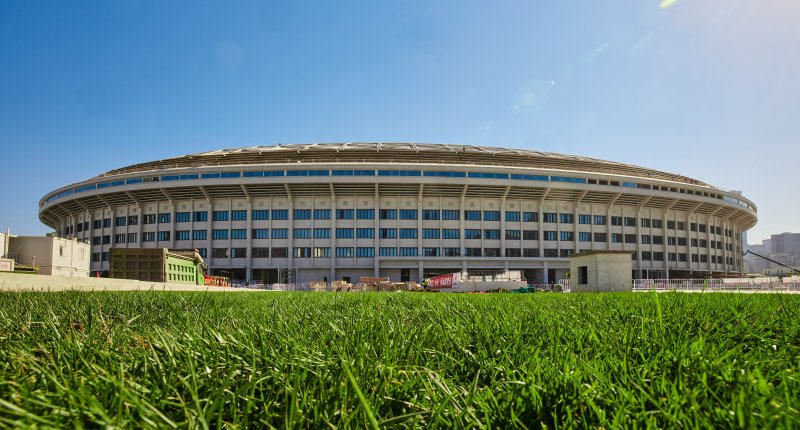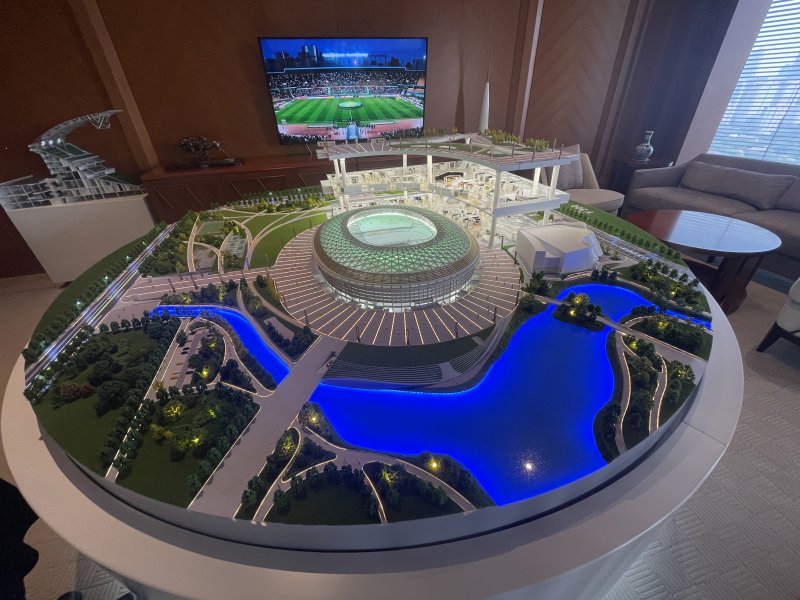A Talk With Workers' Stadium's Operating Company on What New Gongti Has in Store for Beijing
Beijing Workers' Stadium, home to a range of large-scale sports events including the 1990 Asian games and some soccer matches during the Beijing 2008 Summer Olympics, will soon have a new look follwing a major reconstruction project that is expected to finish by December this year.

Jin Fei, the vice general manager of 中赫工体 Zhōnghè Gōngtǐ , the operating company behind the remodel, spoke with us about how the new Gongti will look once it's finished, and explains why he believes the Workers' Stadium will become the next hot spot in Sanlitun area once completed.
Compared to the old Gongti, what are some of the biggest changes people can expect to see with the new Gongti?
There are three main changes that have been made to Gongti. The original stadium had a running track, but after the revamp, the running track has been removed. Another big change lies in how Gongti will be used. More than 100,000 square meters of commercial facilities have been added to the complex, transforming the area into an entertainment venue where people can eat, shop and dine. The new stadium also features a giant underground plaza which soccer fans and fitness enthusiasts can explore. Moreover, the Beijing municipal government has also designed a station for subway Line 3 and 17 to specifically connect to the Workers' Stadium in order to ease traffic congestion.

Can you tell us more about the complex's underground commercial space?
In the northeast corner of the stadium lies a giant sunken commercial space which we hope will eventually become one of the most popular places in Sanlitun. It will be comprised of restaurants, fashion, and retail stores. It would be fair to say that the new Workers' Stadium will not only become a place where people can watch soccer matches, but also one of the most vibrant entertainment venues in Beijing, one that is on par with Taikoo Li or Parkview Green.
Can you tell us more about the lawns and the lakes around the stadium?
After the reconstruction, the fences that used to surround Gongti have been removed. When you come to the Workers'Stadium in the future, you'll find that there will be no more walls blocking your way from entering the stadium as the entire area has been transformed into an open park. There are large green spaces around the lake where people can take part in activities such as skateboarding, basketball, or even frisbee. Moreover, when Gongti was first built, one important goal was to promote intercultural communication. Gongti is situated right next to the embassy area and many foreigners are sports enthusiasts, so we aim to create a space where people from all over the world can participate in different activities.

When fans learned Gongti was going to be reconstructed two years ago, many were wondering if the new Gongti will still be able to host concerts. Can you tell us more about this?
When fans walk into the stadium, they'll be able to notice a movable stand in the south area of the stadium. These stands are designed in such a way that they are able to stretch and move around for future concert needs. Right now we've been working out the specifics to ensure that the stage will not damage the turf. We have certainly taken fans' suggestions into consideration and yes, the new Gongti will be able to host concerts. It could possibly even host events like motorcycle sports, fashion shows, and ice hockey games during winter in the future.

What are some of the advantages Gongti has over other major commercial areas?
I believe that Gongti will attract large crowds of people once it opens because many fans are drawn to the concept of sportsmanship, which is what makes Gongti stand out. Also, compared to other event venues, Gongti has a bigger capacity, which means that we are able to host large-scale events that other venues simply aren't capable of doing.

What does the Workers' Stadium mean to you?
I am a huge soccer fan! I've been watching Beijing Guo'an play matches since 1992. I remember that Xiannongtan Stadium used to be Beijing Guoan's home stadium from 1994 to 1995. At that time, we would grab our big green military jackets and cycle all the way to the stadium just to watch the game.

In 1996, Beijing Guo'an found its new home at Beijing Workers' Stadium, which has been home to the soccer team now for more than 20 years. I am certainly very proud to be able to get involved in this project and become a part of its history.
READ: Workers’ Stadium Nears Completion as Concrete Façade, Stands Unveiled
Images: Courtesy of 中赫工体







